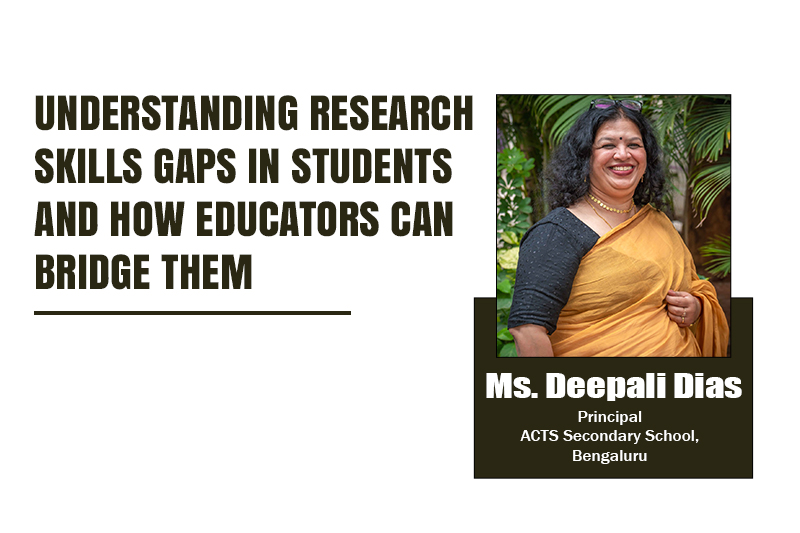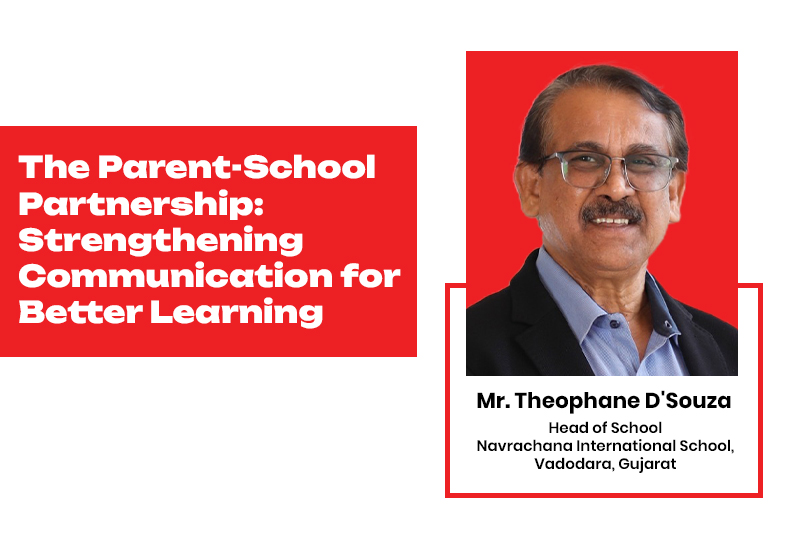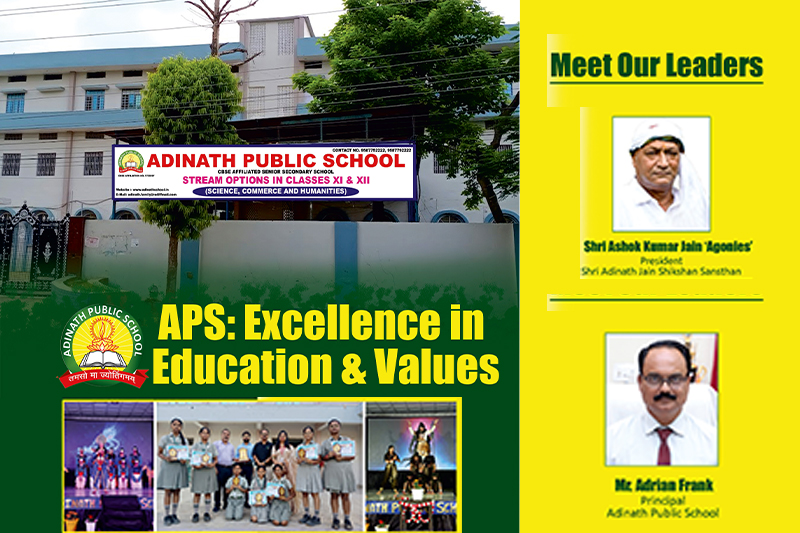Ms. Sonia Chhabra, BBPS Pitampura: Leading Ethical & Inclusive EdTech in Future Classrooms
“With vision as a guide and service as a foundation, a true leader transforms a school into a place where potential is realized, character is shaped, and every dream is given the chance to take flight.”
As the world races toward an increasingly digital future, the role of educational institutions is rapidly evolving. Integrating technology into the classroom has brought about sweeping transformations in how students learn, teachers teach, and schools operate. However, while innovation opens new doors, it also brings an urgent need for ethical reflection. For Ms. Sonia Chhabra, Principal of Bal Bharati Public School, Pitampura, the true measure of progress lies not merely in how advanced our tools become, but in how they are applied responsibly and ethically.
A distinguished educationist with over three decades of dedicated service, Ms. Chhabra is recognized for her visionary leadership, inclusivity, and unwavering commitment to holistic development. Under her leadership, BBPS Pitampura has emerged as a dynamic educational environment where excellence meets empathy and technology is harnessed with a strong ethical compass.
Embracing Technology with Integrity
At Bal Bharati Public School, Pitampura, digital transformation is not a trend but a thoughtfully curated journey rooted in values. The institution views EdTech not as an end but as a means to empower students to think critically, act compassionately, and learn with purpose.
While artificial intelligence, adaptive learning platforms, and immersive virtual simulations now enrich classroom experiences, Ms. Chhabra asserts that technological advancement must accompany ethical responsibility. “Innovation must never outpace intention,” she often remarks, emphasizing that students should become not just digital natives but ethical digital citizens.
In today’s rapidly shifting landscape, questions of data privacy, algorithmic bias, screen dependency, and equitable access have become central to discussions around educational technology. BBPS Pitampura proactively addresses these issues through policy, pedagogy, and practice.
Prioritizing Student Well-being and Digital Equity
BBPS Pitampura’s classrooms have smart boards, AI-enabled assessments, and personalized learning tools. These digital solutions enable customized academic journeys, allowing students to learn at their own pace, receive instant feedback, and effectively bridge learning gaps. However, such technologies are carefully calibrated to ensure balanced screen time and emotional wellness.
The school enforces comprehensive screen-time guidelines to mitigate the risks of digital fatigue and overexposure. Offline engagement is actively encouraged through initiatives like reading clubs, outdoor projects, and nature exploration activities, reinforcing that real-world experiences remain essential to a child’s growth.
Recognizing the diverse needs of learners, especially those with physical or cognitive challenges, BBPS Pitampura has also adopted assistive technologies, including text-to-speech tools, adjustable fonts, and custom digital interfaces. These tools foster inclusivity and empower students to learn with dignity and confidence.
Ms. Chhabra’s belief in equity through innovation has ensured that technology becomes a bridge—not a barrier—for students of all backgrounds and abilities.
Teacher Empowerment: A Critical Link
Technology can only be as effective as the hands that wield it. Recognizing this, the school invests heavily in ongoing professional development for its educators. Teachers undergo regular training in the latest EdTech tools and workshops on cyber safety, digital ethics, and emotional resilience in virtual classrooms.
More importantly, teachers are trained to model responsible digital behavior, demonstrating how to interact respectfully online, verify digital content, and maintain a healthy relationship with technology. This modelling reinforces the idea that while students may learn from technology, they learn more deeply from the examples set by their mentors.
Ms. Chhabra often highlights that digital fluency must be accompanied by digital discernment. “The role of the teacher has evolved,” she says. “It’s no longer just about instruction—it’s about interpretation, empathy, and guiding students through the digital maze with clarity and conscience.”
Cultivating Values in Hybrid Environments
In today’s post-pandemic world, hybrid learning models have become the norm. At BBPS Pitampura, students now navigate blended classrooms where virtual collaboration augments physical presence. Learning has transcended traditional boundaries from virtual labs to real-time discussions with global peers.
Yet, even as technology creates limitless possibilities, the school remains anchored in timeless principles. Each day at BBPS begins with a mindfulness or values session—a moment to reflect, breathe, and reconnect with one's inner self. These sessions promote emotional balance and underscore the importance of character development in a tech-driven age.
Discussions on ethics, media literacy, and social responsibility are seamlessly integrated into the curriculum in classrooms. Students are encouraged to question: What is the source of this information? Is this AI-generated content fair? How do we ensure privacy while learning online?
By embedding such questions into daily learning, the school fosters a culture where thinking ethically becomes second nature.
Towards a Responsible Digital Future
The broader goal at Bal Bharati Public School, Pitampura, is to nurture students who are not just academically accomplished but also socially and ethically grounded. Whether they become scientists, entrepreneurs, artists, or educators, Ms. Chhabra believes they must carry with them an unwavering sense of responsibility towards humanity and the planet.
In her view, technology must serve the human spirit, not overshadow it. The school’s approach is not about resisting change but about shaping it—ensuring that a moral stride matches every digital leap.
“In a world where algorithms influence thoughts and screens mediate relationships,” Ms. Chhabra says, “our children must grow up understanding the value of truth, empathy, and accountability. Education must not just teach them how to use tools, but how to use them wisely.”
A Model for Other Institutions
Bal Bharati Public School, under the leadership of Ms. Chhabra, stands as a model for ethically conscious education in the digital era. Its practices—rooted in research, values, and foresight—offer a replicable blueprint for schools that are navigating similar transformations worldwide.
The school’s emphasis on digital citizenship, inclusive learning, and teacher empowerment reminds us that the future of education is not simply about what we teach but also about how and why we teach it.
Final Reflections
As education continues its metamorphosis through technology, Ms. Sonia Chhabra’s voice adds a vital dimension to the discourse, reminding educators, policymakers, and parents alike that ethics must be the foundation of innovation.
In the halls of BBPS Pitampura, future-ready learners are being shaped—not just with knowledge but also with integrity. They are taught that while technology can open doors, character decides where those doors will lead.
Want more thought-provoking articles like this? Check out EducationToday – where education meets innovation.






